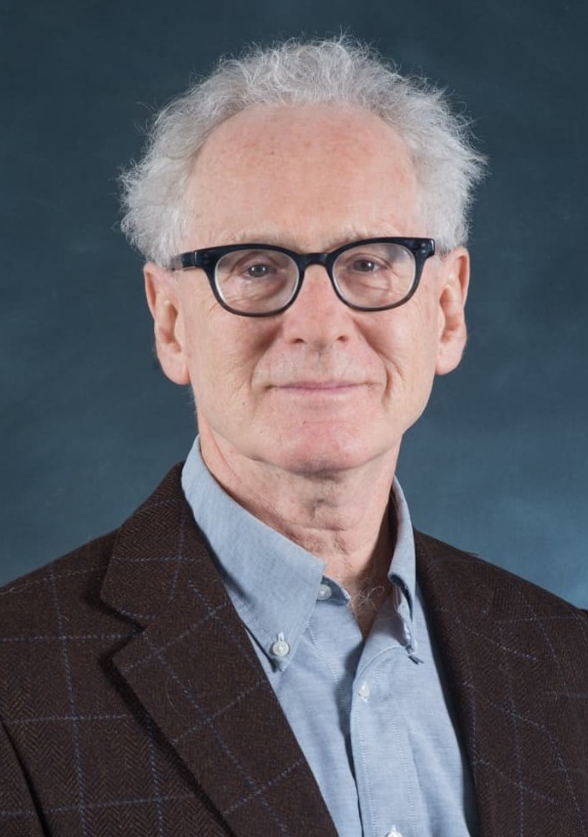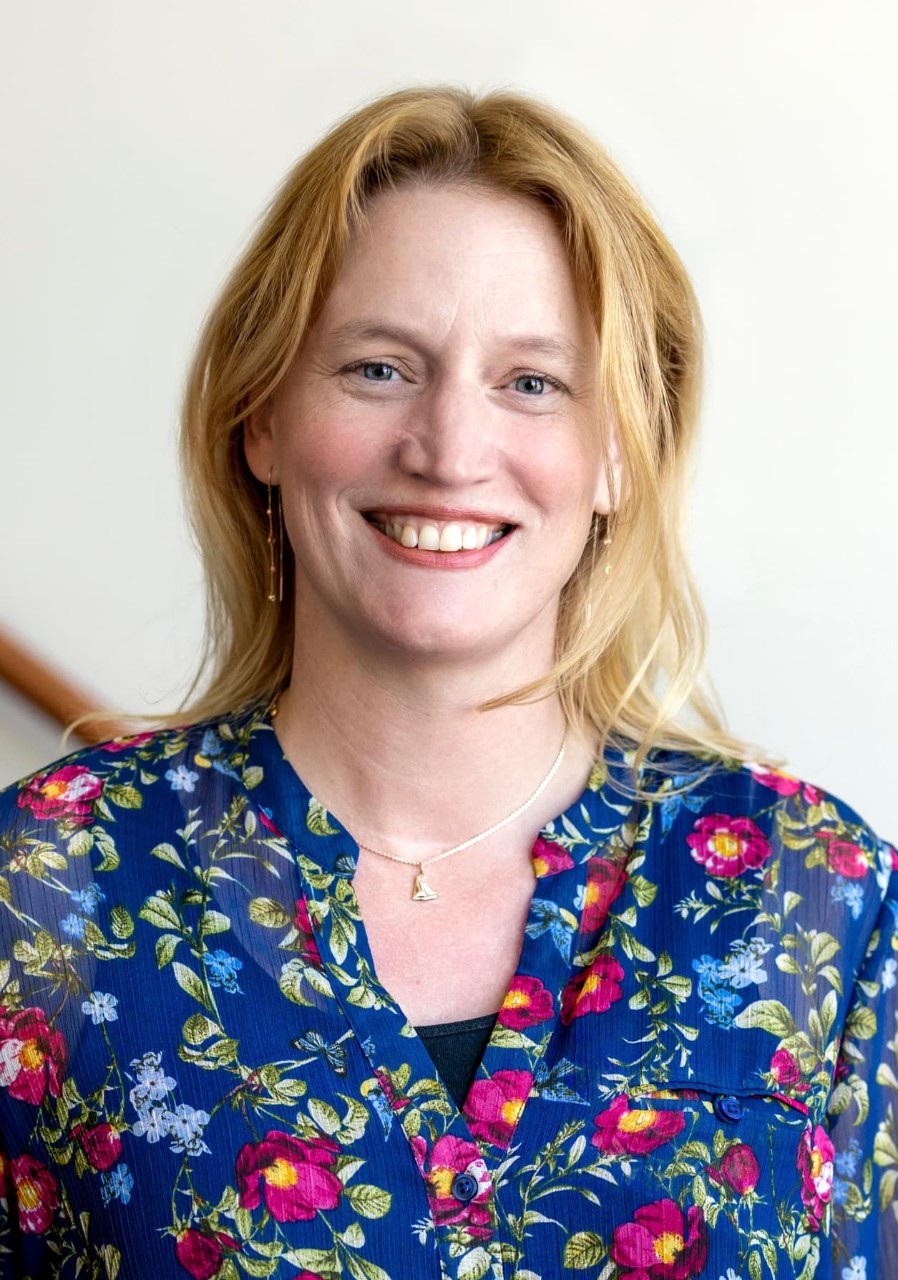Classical Studies Professor of the Practice Thomas Epstein and Communication Associate Professor of the Practice Celeste Wells are this year's co-recipients of Boston College's Phi Beta Kappa Teaching Award.
Each year, BC students in the prestigious honor society submit nominations for outstanding teachers who have positively influenced their experiences at BC, either inside or outside the classroom. Faculty are selected for the award based on the cumulative nominations from students over multiple years.

Thomas Epstein (Peter Julian)

Celeste Wells (Caitlin Cunningham)
Epstein, who joined the University in 1998 in the since-discontinued College of Arts and Sciences Honors Program, has taught in the Eastern, Slavic, and German Studies Department and is now primarily teaching in Classical Studies; he also teaches a course on Russian cinema in the Art, Art History, and Film Department. While Epstein focuses his research on Russian poetry of the late 20th century through the present—with particular interest in Saint Petersburg’s Underground artistic and literary movement—he also delves into philosophy, cinema, and the visual arts.
His scholarly activities abroad have included a semester teaching English at Smolny College in Saint Petersburg under a Council for International Exchange of Scholars Fulbright fellowship—one of nearly 50 visits he’s made to Russia in three decades—and another semester at the Venice International University. Epstein also teaches the undergraduate summer course Modernism in Paris, which involves museum visits, guided tours, and other cultural activities in Paris.
“More than anything, this award for me has been a catalyst for gratitude and reflection. How fortunate I am to have found a home at Boston College, where my various interests have found expression,” said Epstein. “Teaching has something sacred about it. Perhaps all meaningful activity does. To be able to devote one’s life to knowledge and its diffusion, to learning and intellectual exchange is to participate in great work. To be recognized by generations of students is deeply satisfying, and humbling. While I know that I have reached numerous students over these past 20-plus years, I also know that many of my colleagues have, too.
“I see the Phi Beta Kappa award also as collective and symbolic recognition: an award that recognizes the value and impact of all great teaching, and seeks to inspire future students and instructors to the pursuit of excellence, mutual commitment, and ever greater understanding of the meaning and meanings of our human lives.”
A member of the BC faculty since 2010, Wells pursues communication scholarship that assists students in becoming socially-just individuals, and aids organizations in improving practices in order to become more socially-just employers. She studies inequities that emerge from rhetorically-positioned perceptions regarding difference, particularly nation, race, and gender. Her research also aims to improve the ability of educators to teach complex communicative topics in order to develop student understanding of inequities in society.
“I was honored to find out that, over my course of service at Boston College, students have nominated and recognized me as a teacher that has been a positive force in their lives,” said Wells, who in 2017 was chosen as Teacher of the Year by the BC chapter of Alpha Sigma Nu, the honor society of Jesuit colleges and universities. “I am so proud to accompany outstanding young people in their education. I value the opportunities I have to work with students as they decide what interests them, excites them, makes them furious, and, most importantly, engages them, as these emotions are often catalysts for deep attentiveness and reflection.
“It is my hope, and I am sure I am not alone in this, that through my work, I can play a beneficial role in mentoring our future leaders in a way that may ensure a more socially responsible future. This award has given me time to reflect on my vocation with sincere happiness and has further motivated me to work hard for our students and the University.”
Students nominating Epstein praised his demonstration of “the importance of active contemplation and an intellectual lifestyle beyond the classroom”; the “meaningful and authentic” insight he offered into an array of subjects ranging from transcendental and metaphysical literature to Soviet-era wartime propaganda; and his facilitation of “excellent in-class discussions.”
One student in the Modernism in Paris class had heard others laud Epstein for making the experience a valuable one—and was pleased to find that the praise was justified: “From the moment he handed me a piece of baguette upon my arrival, I knew [I would enjoy the experience].”
A nominator for Wells extolled her willingness to help students understand class material as well as the care and concern she has shown: “My class still gets Groupme messages from her checking in on us, giving us tips to combat anxiety from being in quarantine, etc. and I know that she will always be there if I need someone to talk to (and she has been!).”
Another also cited Wells’ attentiveness to students: In a class with 100 students, “she took the time to learn everyone’s name before the first class,” the student wrote, adding that Wells encouraged students to announce upcoming or ongoing campus events and activities. “She wanted to know what students were interested in, and she wanted students to participate in events and learn about what's happening on campus around us.”
Wrote another: “Every day when I went into her class I felt cared for in the most whole sense, and her unconditional support helped me to grow personally and academically each and every day.”
Sean Smith | University Communications | June 2022



